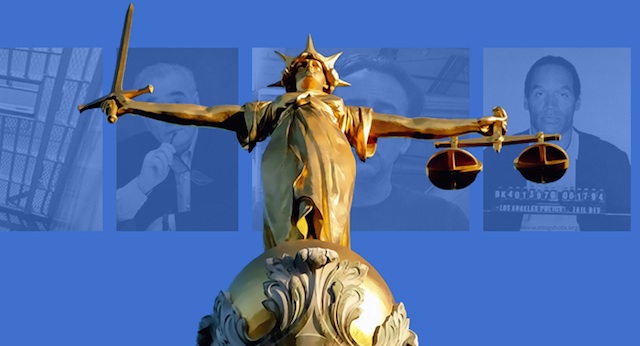Chances are, if you’re an early evangelist the idea of a marriage between ‘Bitcoin’ and ‘taxes’ makes you cringe, however, we have to face facts. Extreme changes arise from chaos or time and Bitcoin, as anticipated for the price of the digital store of value, is going the route of stability.
Taxing Bitcoin has become a reality since this spring, and where several have seen an ideological disconnect, Jake Benson from LibraTax has seen an opportunity. You may be familiar with LibraTax from our previous coverage of their unveiling. We’re pleased to share their demo video from CoinSummit London if you’re interested in diving deeper.
US citizens in particular may be interested in using LibraTax due to the official announcement made by the IRS on March 25, 2014 pertaining to transactions involving cryptocurrencies. In this statement, the IRS labeled Bitcoins as taxable and stated that cryptocurrencies will be treated as property, not currency. Our list of implications can be found here.
To provide perspective, imagine that every dollar of cash you hold is no longer treated as a medium of exchange but as an investment vehicle. Proceed to imagine that every time you purchase coffee, you would be required to track the dollar exchange rate in real time and report gains on fluctuations. Truly, it is unfortunate that we cannot realize losses in purchasing power due to inflation with similar principles.
Treating cryptocurrencies as property has translated into a notable compliance burden, particularly for daily transactions and mining pool hosts. If a person is found to be using a wallet other than, notably, Coinbase or Blockchain, they may encounter challenges tracking their transactions, leaving people whose records busted with Mt. Gox at the bottom of the barrel.
Some may feel the IRS to be incapable of discovering anonymous Bitcoin transactions, unless they are informed by a third party with an ulterior motive. Consequently, one may conclude the easiest way to circumvent complex compliance requirements is to avoid taxes altogether.
However, realize that individuals possessing high net worth have been placed behind bars with criminal cases to fight because they believed in the same ideal. To be clear, there are loopholes in every system, but engage at your own risk - no one is bulletproof.
Opportunities the IRS has to find out about your Bitcoin activity
- Your exchange may voluntarily file a 1099 form concerning your activity, however, they need your security number to do so; you will know when they try.
- Your bank may file a report about you under ‘Suspicious Activity Reporting’ (SAR). The catch? The scheme requires each bank to submit a certain number of forms for each period, meaning they cannot state ‘no suspicious activity detected’ - they must report a fixed amount of ‘most suspicious activities’ regardless of their degree. Moreover, the criteria for ‘suspicious activity’ are rather vague and as a result, all banks file the required number of SARs from their transactions and many of them put all Bitcoin transactions in SAR to ease their lives. In this case, you cannot verify whether your activity was reported - banks are prohibited by law to let you know this.
- Your fellow citizens may be incentivized to report you to the IRS for remuneration if the information they provide proves to be valuable.
The following interview with the owner of BitcoinTaxSolutions, created after the IRS announced new regulation mechanisms, may be helpful to understand what Bitcoin tax compliance means.
Court of Conscience
Now that we have outlined why US citizens are likely to consider complying with Bitcoin tax requirements, let’s see what LibraTax can do for them. Jake Benson and company have recently raised a modest US$500,000 round led by Liberty City Ventures featuring prominent investors such as James ‘Jim’ Pallotta, the managing director of Raptor Ventures and Ben Davenport, the CPO of BitGo made famous by his involvement with facebook.
We sat down with Jake to learn about his standing and his plans.

Cointelegraph: How do you feel your company will impact the evolution of Bitcoin?
Jake Benson: We will save taxpayers, accountants, and accounting firms a tremendous amount of time and money. At best, we will help usher in a dose of professionalism and enterprise grade products that legitimize the industry.
CT: What is the biggest tension you have faced when building this company?
JB: Grappling with the fact that many of Bitcoin’s early adopters have interest in circumventing the establishment, while our service helps to comply with it. I’m very interested to see if we can determine the percentage of bitcoiners who are honest taxpayers.
CT: What were your biggest challenges raising this round?
JB: Before I had a working prototype, it was tough convincing potential investors how simple I wanted the process to be for users. When you have a very complex issue, it is often hard to imagine a solution that does not match the other in complexity. Once I was able to physically demonstrate LibraTax, conversations really started clicking.
CT: Who loves you, who hates you, why and how can you make everyone understand the positive impact you're trying to have for Bitcoin?
JB: It doesn’t matter as much who loves me, it matters more that I have no enemies. Ideally, Libra can operate as a “Switzerland” for the digital currency ecosystem.
CT: What can we expect to see from you in the future?
JB: More value-add features on LibraTax, real-time profit/loss tracking for portfolio management, professional and enterprise grade versions. I can’t give away everything ;)
CT: Why take this valuation? Were there people pushing you to go higher and lower?
JB: When you are raising money advice comes from many directions. The terms of our raise were not out of the ordinary for Silicon Valley startups.
CT: You've told us previously that you're unable to answer any complex tax related questions as those on CPA's and Certified Professionals, however, I would love to know if there are any tips you're aware of that you can share with our readers.
JB: One silver lining to the guidance that digital currency is considered ‘property’ is that donations have the potential to be much more financially beneficial than before. Strongly consider donating some of your most appreciated coins, it may prove to be highly effective for reducing your taxable liability to the IRS.
CT: Most interesting experience you've had in Bitcoin thus far?
JB: I’m sure the most interesting experience is yet to come. But to answer your question, my most interesting experience so far was the day IRS guidance came out in March 2014 and my first article appeared in Forbes.
CT: Anything else you would like to share? A closing statement? A prediction for the future of Bitcoin?
JB: In this world nothing can be said to be certain, except death and taxes (stolen from Benjamin Franklin - the guy on our $100 bill).

Care to Learn more?
On the funding round:
- LibraTax Out of Beta, Silbert Launches Digital Currency Group, & ZeusHash
- Libratax Announces $500k Funding For IRS Compliant Bitcoin Tax Prep
On the product:
- LibraTax Looks To Solve Bitcoin Tax Accounting-Related Woes
- First TBI Product Review - Libra Tax saved me $1,000 vs. the Coinbase tax reporting tools…
- Bitcoin is a Tax Nightmare, But LibraTax Has Got You Covered
From the Source:
TC interview on bitcoin tax compliance:
